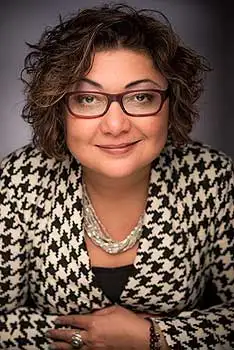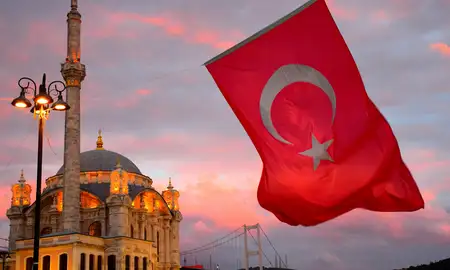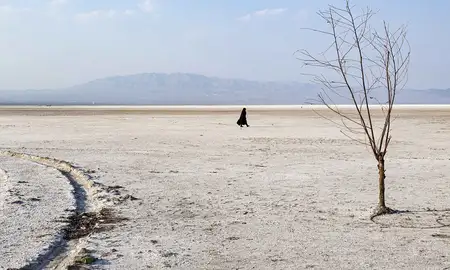
President Tayyip Erdoğan has emerged as victorious in the Turkish election.
The second election round in Turkey was finalised yesterday, with President Tayyip Erdoğan emerging as victorious, much to the disappointment of the opposition alliance and their supporters.
There are several reasons for his victory. Some of them are rooted in the economy, some in President Erdoğan’s social policies, and some in the domestic and foreign policies that he has adopted and established over the last 20 years of his rule.
However, while he survived this election, the powerful coalition he faced in this round demonstrated its ability for social mobilisation and posed some challenges to his rule that he will not be able to brush off by simply labelling his oppositions as 'terrorists'.
There were clear signs that President Erdoğan would be the winner of the election when the election was extended to the second round. Over the last 20 years, he has developed a strong connection with the traditional businessmen in Turkey and has been following populist politics in areas where the lower social economic classes live. He was even caught handing out cash to his supporters in a rally and has promised future financial benefits to his supporters.
His relations with the European Union (EU) is another major factor in his victory. In 2017, President Erdoğan signed a deal with the EU to keep Syrian refugees in Turkey instead of becoming a transit country between Syria and the EU.
While there is not much transparency and accountability around the money he has received, he has managed to keep Syrian refugees in Turkey for the most part. The opposition coalition, which is comprised of various political parties, has a strong anti-Syrian refugee stance and considers the President's promise to the EU a growing concern for Turkey. During their campaign, the People’s coalition loudly advertised their policy and insisted that Syrian refugees were to leave Turkey. This stance could make the EU very uncomfortable had the government in Turkey changed.

Dr Negar Partow.
Expressing reservations about the large number of Syrian refugees in Turkey and emphasising the strain that the large number of refugees put on public resources and services pushed the refugees to support his campaign, which had an impact on his success even if refugees could not vote in the election.
Moreover, one of the conditions of the deal with the EU was about the membership of Turkey in the EU. This issue has been kept silent by the EU and a change of government in Turkey could resurface Turkey’s demand. While acknowledging the humanitarian crisis in Turkey, the People’s coalition called for a sustainable approach to addressing the refugee crisis, including increased international support and burden-sharing. This position resonated with certain sectors of the population, but further inflamed the pro-Islamisation rhetoric of the Justice and Development Party (JDP).
The opposition coalition failed to develop a coherent policy and political relationship with Kurdish parties to the extent that while the Kurdish parties supported the coalition, they sent an independent list for the parliamentary election.
The coalition aimed to address longstanding grievances and promote inclusivity by engaging with Kurdish parties. While the opposition party took some steps to recognise the language rights and cultures of the Kurds, they didn’t seem to have the capacity to either revive the peace negotiations or to write a new peace treaty with the Kurds.
This is, to a degree, due to differences of opinion in the opposition and some historical issues in the relationship between the Kurdish parties and the central government in Tukey. At the same time, some of the Kurdish parties remained sceptical about the commitment of the People’s coalition to change. These foreign and internal political issues were exacerbated by the declining economic situation in Turkey.
Turkey's economy played a crucial role in President Erdoğan's electoral success. Despite facing some major challenges, his past policies have fostered some economic growth. The deal he signed with the EU was worth €6 billion, which he used to ease economic pressure at the time.
We have yet to see how President Erdoğan’s government will deal with the growing financial crisis and economic challenges, but the main problem in the election was that the opposition didn’t have a coherent and inclusive economic policy. Their campaign almost exclusively relied on the revitalisation of the republic’s national identity. It was not clear what initiatives the opposition would consider to be instrumental in reducing unemployment and improving living standards for everyone in Turkey.
There was no discussion on policies or measures that could stimulate domestic economy and industries, nor any idea about how to deal with the EU after the failure of the deal and the expulsion of refugees. This lack of planning concerned a substantial number of voters, who were worried about economic stability and therefore significantly contributed to President Erdoğan's electoral victory.
This election round in Turkey revealed a deep division in Turkey’s society over the President's Islamisation project, his definition of national identity and the possibility of alliance amongst the country’s political parties.
While the election showed the interplay of diverse economic, social and political factors, it also showed how deeply divided the country is. The opposition coalition's stance on Syrian refugees and their engagement with Kurdish parties were attempts to address grievances and mobilise diverse communities, but they faced challenges due to President Erdoğan’s populist policies and political rhetoric.
His success can be attributed, in part, to the fear he promoted within Turkish society. Calling his opposition terrorists is an example of how he uses strong rhetoric to label, discredit and delegitimises the opposition, who have now posed a major challenge to his leadership.
By framing his opponents as terrorists, President Erdoğan invokes fear and legitimises his populist policies. The result of the first round of the election showed that the opposition is fierce and powerful. By posturing as a strong leader who can protect the country from perceived threats, he is legitimising his rule and deflecting the critiques. The use of such rhetoric reveals how polarised the society is and how he is using this polarisation to potentially impede domestic political negotiations.
The result of this election could lead to further stagnation in Turkey's membership in the EU. It appears that for President Erdoğan, foreign policy will continue to take precedence over domestic politics. His re-election grants him increased power in negotiations with the EU regarding the transit of energy and goods.
Additionally, his re-election could signify a closer alignment with China and Russia and a greater ideological distance from the West. His success translates into heightened tensions with secular forces, particularly secular women, and an intensified propaganda campaign aimed at reviving the glory of the Ottoman Empire.
The push for Islamisation distances Turkey further away from Israel while drawing them closer to Iran, in hopes of finding new markets for Turkish products. It remains to be seen whether his government will re-evaluate the policies adopted about the Kurds, as this will greatly impact Turkey's relations with its Arab neighbours in the south.
Related news

Opinion: Unity and innovation in Iranian and Afghani women’s resistance strategies
By Dr Negar Partow.

Opinion: With an Iranian Feminist Revolution on the rise, the future of political Islamism is determined
Senior Lecturer Dr Negar Partow from Massey's Centre for Defence and Security Studies offers insights into the women's movement in Iran.
